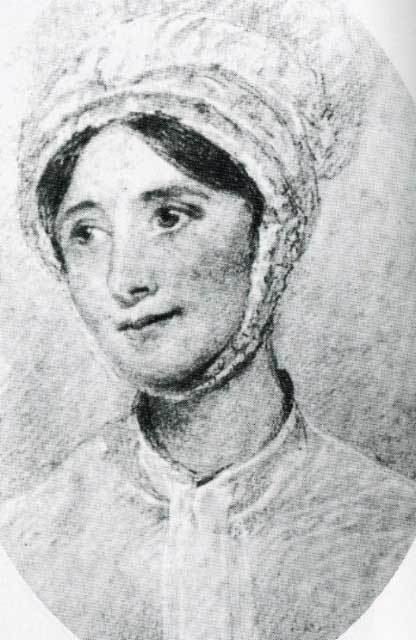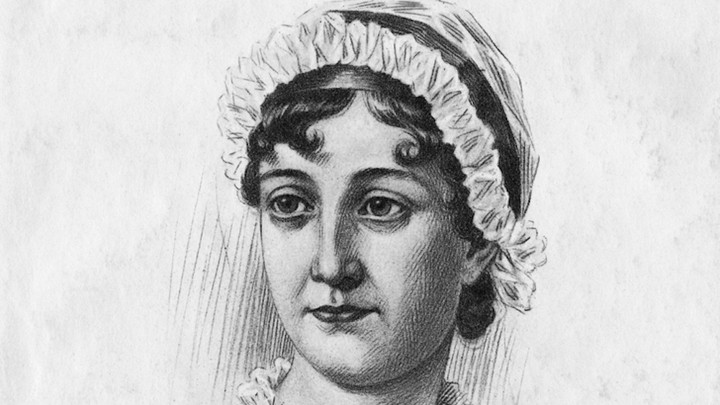
1840: twenty three years after the death of her famous sister Jane, Cassandra Austen returns to the village of Kintbury, and the home of her family’s friends, the Fowles.
She knows that, in some dusty corner of the sprawling vicarage, there is a cache of family letters which hold secrets she is desperate should not be revealed.
As Cassandra recalls her youth and her relationship with her brilliant yet complex sister, she pieces together buried truths about Jane’s history, and her own. And she faces a stark choice: should she act to protect Jane’s reputation? Or leave the contents of the letters to go unguarded into posterity …
Based on a literary mystery that has long puzzled biographers and academics, Miss Austen is a wonderfully original and emotionally complex novel about the loves and lives of Cassandra and Jane Austen.
*************************************************************************************
Although I’ve read all of Jane Austen’s novels, before tonight I knew little about the woman herself – other than that, like the Brontës, she died relatively young and that my favourite novel of hers, ‘Persuasion’, was published posthumously.
The opportunity to hear Gill Hornby talk about her latest novel, ‘Miss Austen’, was therefore too good to miss – especially as her interviewer was Booker Prize judge John Mullan, author of ‘What Matters in Jane Austen’. The British Library provided the perfect setting, as the home of Austen’s writing desk, original manuscripts, juvenile writings and a number of her letters.
What I enjoyed most about tonight was that it focused more upon Cassandra, Jane’s older sister – Miss Austen – than it did upon Jane herself. In Hornby’s view it’s through Cass, or Cassie, as she was known, that we come to know the elusive author. I also appreciated how Hornby gamely talked much more about the Austen family than she did her book – in a way that was both funny and informative.
In 1840, when the novel begins, Jane has been dead for over 20 years. The setting is Kintbury Vicarage, where three generations of the Fowles family have lived across 99 years. The Fowles and the Austens grew up together and Cassandra was engaged to Tom Fowle until his untimely death aged 25. Now approaching the end of her life, it falls upon Cassandra to dispose of Jane’s meagre possessions, knowing she’ll be unable to protect her sister once she’s departed this world.
Cassandra was the elder daughter out of six Austen boys and two girls. ‘Miss Perfect’ is how Hornby describes her; she was better looking and taller than Jane, more capable, extremely intelligent and a brilliant help around the house. Their mother, also called Cassandra, idolised her – yet Cassie, and Jane, were destined to remained spinsters.
Until now, Cassandra has been harshly treated by posterity. Unlike Jane, who died in her prime, having just written ‘Persuasion’, Cassandra “outlived her usefulness and lived for too long.” Indeed, in the family memoir, their nephews and nieces – who Cassandra nurtured and taught to read & write – talk disparagingly of her, whilst praising Aunt Jane to the skies.
Hornby’s starting point for her novel was the 160 letters from Jane to Cassandra which still exist (Cassie’s replies have, sadly, disappeared). It’s obvious, Hornby told us, that Jane adored Cassandra, and looked up to her – and, as Jane grows ill, her letters grow more emotional. She is clearly distressed when, against her will, Cassandra has to travel elsewhere to care for another relative.

However, Jane’s letters furnish us with little detail – rather, they tell us what Cassandra doesn’t mind us knowing. Were they hiding something? Certainly, both women disliked their sisters-in-law, in particular Mary, who was a “horrible” stepmother to Cassandra’s and Jane’s eldest niece, Anna, who turned to them for protection.
We know that the Austen women survived a bleak five years after their father, George, died; his pension died with him – a catastrophe for Cassandra, Jane and their mother who were thrown upon the mercy of their relatives. This was a particularly difficult period for Jane; previously a prolific writer, she was unable to write a single word.
Cassandra and Jane had been devoted to their father, but found their hypochondriac mother deeply trying. And yet, Cassandra spent the final ten years of their mother’s life caring for the woman after whom she was named – a not uncommon fate for a 19th century spinster. Tellingly, the visits from her brothers grew fewer and fewer as their mother grew even more cantankerous.
Hornby is adamant that Cassandra and Jane were the loves of each other’s lives. Their letters remain the only evidence of how they intertwined and are, she says, a fascinating insight into 19th century female daily life. ‘Big’ topics, such as the war with France, are never discussed; rather, the subjects are “utterly trivial”, with a particular focus on how tricky servants were to manage.
That Cassandra burned most of the sisters’ correspondence means there is a part of Jane we will never know – disappointing for us, but what the shy, introverted author would have wanted.
In her novel, Hornby writes Jane’s letters for her – and told us that, having expected to be “battered” by Austen fans for doing so, the fans have been incredibly receptive. Transitioning from biographer to novelist has, ultimately, been liberating, Hornby concluded: “It’s much easier to make things up!”

Like you, I love Jane as a writer, and I knew nothing about Cassie. Lovely to read this.
LikeLiked by 2 people
Thank you – I’m so glad you enjoyed it. I think that Gill Hornby’s book will be wonderful.
LikeLike
As always you teach me something and leave me wanting more. In this case, I have more Jane Austen to read.
LikeLiked by 2 people
I’m so glad you enjoyed the post. Like you, learning about Jane and Cassie has made me want to explore Jane’s writings further, now that I know a little bit more about her personality and family.
LikeLiked by 1 person
V informative thnx 🙂
LikeLiked by 1 person
Oh this sounds incredible, gave me the chills. I love both Austen sisters. Persuasion is also my favorite novel. Captain Wentworth, my favorite hero.
LikeLiked by 1 person
I could read Persuasion over & over again and never get bored with it. It’s a sublime piece of writing.
LikeLiked by 2 people
Sounds wonderful. Currently watching the PBS series Sanditon, which has renewed my interest in the Austens.
LikeLiked by 1 person
Oh, I definitely want to read this! My sister and I are both Austen fans. She wanted to call her first daughter Emma, but my cousin got in first so she called her Harriet instead. And my younger niece is Cassie …
LikeLiked by 1 person
I think the book will be fantastic, Anabel: Gill Hornby is such an engaging speaker and I’m sure that will come across in her writing.
LikeLiked by 1 person
Very interesting, it left me wondering how good the new Emma film will be? I heard a review of the new David Copperfield film which described it as having a “brilliantly inclusive colour blind ensemble cast.” However my wife who is a black woman went to see the film and was not remotely impressed with the film as she thought it seemed to be a box ticking exercise to cram in as many culturally diverse people merely for the sake of it. We are both a tad old fashioned in that, if a piece is set in a certain time it should reflect that time, on the other hand if you want to use a brilliantly inclusive colour blind ensemble cast then write a new story set in a period that would be appropriate for said cast.
LikeLike
I saw a trailer recently for the new ‘Emma’ film and thought it looked quite good, although whether the world needs another film adaptation is another question. I was interested to read your comments on David Copperfield; the reviews have been mixed and I wonder how much appetite there is for these continuous remakes. I love the classic novels, that goes without saying, but there seems to be a dearth of new ideas and the film industry seems unwilling to take chances with new material.
LikeLiked by 1 person
I am currently reading Pride and Prejudice. I know that I have already read Pride and Prejudice or Persuasion in the past but I cannot remember which one. I will find out after finishing Pride and Prejudice and start on Persuasion. This is an interesting post. Thank you!
LikeLiked by 1 person
I’m so glad you enjoyed the post – and I hope you enjoy both P&P and Persuasion. I love them both but there’s a special place in my heart for Persuasion.
LikeLiked by 1 person
I have the book “Persuasion” in my book shelf and I have a feeling that I have read it already. I read one Jane Austen book many years ago but I cannot remember which one. I am planning to read all of her works. I am enjoying P&P tremendously and almost finished reading it. 🙂
LikeLike